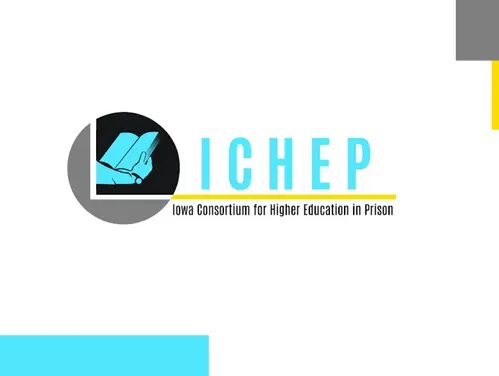For four former Iowa inmates, they’re ready to make a difference. They are serving as the first ambassadors for the Iowa Consortium for Higher Education in Prisons (ICHEP) and will use their experiences as incarcerated students to help shape future educational opportunities in Iowa’s correctional facilities.
The ambassadors assist ICHEP with advancing higher education in corrections and serve as bridges to increase communications, understanding and cooperation.
“Being an ambassador will help me advocate for the importance of investing in education for incarcerated students,” said Vanice Heath, ICHEP ambassador. “I can also work with incarcerated and newly released individuals to promote and encourage an educational mindset.”
ICHEP is a multi-organization effort that focuses on establishing high-quality education for inmates. Representatives from higher education institutions, the Iowa Department of Corrections, the Iowa Board of Regents and the Iowa Department of Education participate in ICHEP planning activities. Adding in the new ambassadors to the ICHEP team offers a more comprehensive approach to the work and provides consumers with a voice.
“Education in prisons is growing, so we need to ensure incarcerated students are receiving quality experiences, similar to any other student in Iowa,” said Peggy Long, corrections education consultant at the Iowa Department of Education. “The four ambassadors will be a vital part of the consortium in how we reach inmates, how we can deliver learning opportunities and how we can help individuals find success.”
Ambassadors were selected through an application process. They serve a one-year term and receive a stipend for their participation on the ICHEP team. During their term, the ambassadors provide input on ICHEP activities and goals and participate in workgroups. Through these discussions, they also help to determine the role and scope of their work with inmates. To be considered, prospective ambassadors must have participated in educational opportunities during their time served and want to contribute to their communities.
“I want to give back to the college programs that gave me the educational opportunities while incarcerated,” said Peter Thullen, ICHEP ambassador. “I can serve as a public voice and success story and want to reach other currently incarcerated individuals.”
Having access to education while incarcerated can be transformative in many ways. For the four ambassadors, each of them earned college credits towards certifications and degrees, which helped set them up for potential college, career and life pathways after their release from prison.
“Soon after my release from prison, I finished my associate degree through Kirkwood Community College,” said Jason Darrah, ICHEP ambassador. “Since then, I have mentored former prisoners, served on a board at Grinnell College and been involved in several nonprofits related to formerly incarcerated individuals.”
Additionally, the ambassadors have noted that education can serve as a positive focus for an individual who is serving time. This is a main reason why this group is highly passionate about promoting how powerful education can be to others.
“I am confident that the turning point in my life trajectory was the Grinnell Liberal Arts in Prison Program,” Thullen said. “The courses gave me purpose and hope and set me up not only for a successful re-entry but also a successful and fulfilling life.
“Quality education for incarcerated individuals can actively redeem the value in a person’s life.”
Communities can also benefit from high-quality education in correctional facilities. Individuals who have participated in education programs while in prison are less likely to re-offend, so reaching current and former inmates through ICHEP and its ambassadors is important for ensuring safe and successful Iowa communities.
“Individuals with lived experiences are crucial and valuable partners for guiding principles in higher education in prison,” said Katrina Carter, assistant deputy director for institution operations at the Iowa Department of Corrections. “This helps build protective factors and creates opportunities for safer communities.”
Providing second chances through education can help to ensure former inmates find careers, purpose and more opportunities to succeed post-release. All of the ambassadors would readily promote the benefits of education to any current and former inmates – and they will hopefully have a chance to reach many of them through their work with ICHEP.
“I would tell any prisoner – no matter their status – that it is never too late to reap the benefits of an education,” Darrah said.
